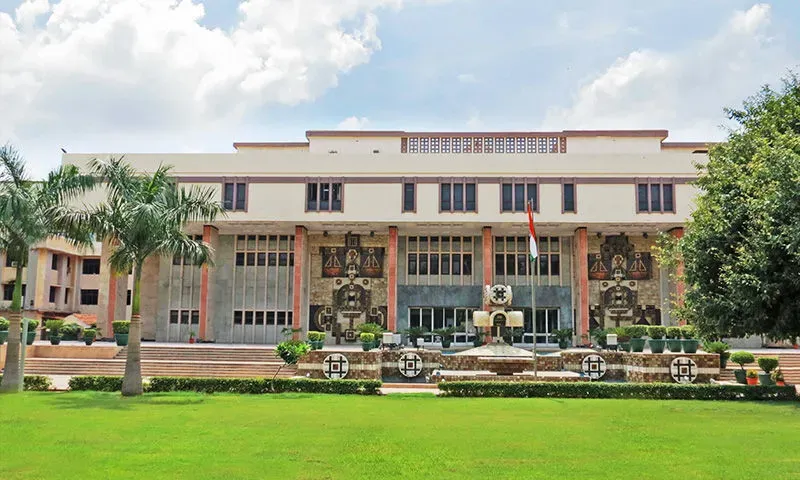In a recent judgment, the Delhi High Court underscored the critical importance of ensuring that witnesses in Arya Samaj Mandir marriages are genuine and bona fide. The court's ruling highlights the increasing concerns over the misuse of Arya Samaj Mandir marriages, particularly in cases where witnesses are either fabricated or not properly vetted. This decision aims to enhance the authenticity and legality of marriages solemnized under the Arya Samaj tradition, emphasizing the need for transparency and integrity in the marriage process.
Background of the Case
The case before the Delhi High Court involved a marriage solemnized at an Arya Samaj Mandir, where the authenticity of the witnesses was called into question. The petitioner challenged the validity of the marriage on the grounds that the witnesses were not genuine and had been arranged merely to fulfill the procedural requirements. The petitioner argued that this lack of authenticity undermined the legitimacy of the marriage and called for stricter scrutiny of the witnesses involved in such ceremonies.
The court's intervention was sought to address the broader issue of witness authenticity in Arya Samaj Mandir marriages, a concern that has grown in recent years. The case provided the court with an opportunity to establish guidelines to ensure that witnesses are genuine and have a bona fide connection to the parties involved in the marriage.
Legal Framework and the Role of Witnesses in Arya Samaj Marriages
Arya Samaj Mandirs are known for solemnizing marriages based on Vedic rituals, often without the formalities associated with court or religious institution marriages. While this tradition offers an accessible option for couples, it also presents challenges in verifying the legitimacy of the process, particularly concerning the witnesses' authenticity.
The presence of witnesses is a critical component in validating a marriage under the Arya Samaj tradition, as it serves as a safeguard against fraudulent or coerced marriages. Witnesses are expected to be individuals who are closely acquainted with the couple and can attest to the voluntary nature of the marriage. However, the increasing incidence of fabricated or unscrupulous witnesses has raised concerns about the integrity of these marriages.
The court highlighted that the role of witnesses is not merely procedural but is fundamental to ensuring that the marriage is genuine and consensual. Witnesses who are not bona fide undermine the very purpose of their role, leading to potential legal and social complications for the parties involved.
Court's Analysis and Observations
The Delhi High Court, in its analysis, recognized the significance of witnesses in upholding the integrity of Arya Samaj Mandir marriages. The court observed that the increasing instances of fabricated witnesses were not only a legal issue but also a moral and ethical concern. The court stressed that the witnesses must have a real and substantive connection to the couple, such as being family members, close friends, or individuals with a legitimate reason to be present at the marriage.
The court further emphasized that the Arya Samaj Mandirs, as institutions, have a responsibility to ensure the authenticity of the witnesses. The court suggested that the Mandirs could implement stricter verification processes, such as requiring witnesses to provide identification and proof of their relationship to the couple. This would help prevent the misuse of the system and protect the sanctity of the marriage.
Additionally, the court observed that the legal system must take a proactive approach in addressing the issue. It recommended that authorities consider establishing a framework for verifying the credentials of witnesses in Arya Samaj Mandir marriages, possibly through a combination of legal and administrative measures. This would not only protect the parties involved but also uphold the credibility of the Arya Samaj institutions.
Implications of the Judgment
The Delhi High Court's ruling has significant implications for Arya Samaj Mandir marriages and the broader legal landscape concerning marriage validation in India. By emphasizing the need for genuine and bona fide witnesses, the court has set a precedent that could lead to more stringent oversight of the marriage process under the Arya Samaj tradition.
This judgment is likely to prompt Arya Samaj Mandirs across the country to re-evaluate their procedures for verifying witnesses. The ruling may also encourage legal reforms aimed at ensuring greater transparency and accountability in the solemnization of marriages under the Arya Samaj tradition.
For couples seeking to marry at Arya Samaj Mandirs, this judgment serves as a reminder of the importance of choosing witnesses who have a real and meaningful connection to their lives. It also highlights the potential legal consequences of using fabricated or non-genuine witnesses, which could result in the invalidation of the marriage or other legal challenges.
Conclusion
The Delhi High Court's decision to mandate the use of genuine and bona fide witnesses in Arya Samaj Mandir marriages is a significant step towards ensuring the integrity and authenticity of these marriages. By addressing the issue of fabricated witnesses, the court has reinforced the importance of transparency and accountability in the marriage process. This ruling will likely lead to more rigorous verification processes and may influence future legal reforms aimed at protecting the rights of individuals entering into marriage under the Arya Samaj tradition. The court's emphasis on the moral and ethical responsibilities of witnesses serves as a crucial reminder of the role that individuals play in upholding the sanctity of marriage.










0 Comments
Thank you for your response. It will help us to improve in the future.